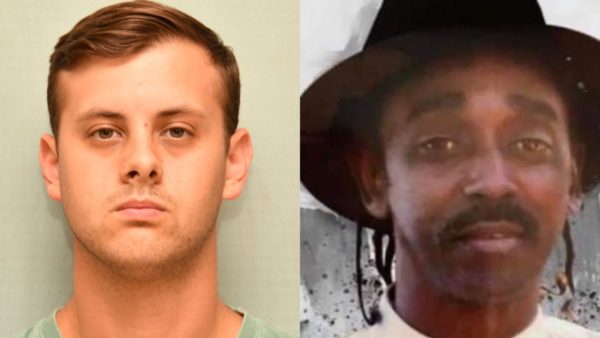A grand jury in Georgia has declined to indict a former state trooper who fatally shot a Black man after running his car off the road during a vehicle pursuit in August 2020.
The 22-person Screven County grand jury returned a no-bill Monday afternoon, declining to indict 27-year-old former Georgia State Patrol trooper Jacob Gordon Thompson on criminal charges for shooting 60-year-old Julian Lewis.
The Georgia Bureau of Investigation charged Thompson with murder last August after finding through an investigation that he wasn’t legally justified in shooting Lewis.
Judge Gates Peed agreed with the GBI that Thompson should be charged with murdering Lewis, because the trooper’s assertion that Lewis was trying to hit him with his vehicle was found to be false after an expert concluded that Lewis’ car, which had been run into a ditch, was inoperable after being run off the road and couldn’t have been used to harm Thompson.

One second passed between when Thompson took his foot of the brake of his vehicle, and when he stepped out to shoot Lewis in the forehead, according to a GBI agent.
The grand jury was presented with the same evidence as Peed, but after a day of witness testimony presented by District Attorney Daphne Totten — testimony that included Thompson, accompanied by his attorney, presenting his own side of the case — the panel did not find there was sufficient evidence to let the case advance to the trial phase, an outcome that dismayed and chagrined the Lewis family and its representatives.
Brook Bacon, Lewis’ son, responded to the jury’s decision, saying, “I am shocked and in disbelief. What the Grand Jury did today was worse than what Jacob Gordon Thompson did when he shot my father in the head. It was murder when Thompson killed my father. But what this District Attorney and Grand Jury have killed is any belief Black people can have in this Justice System.”
The no bill means that the grand jury did not recommend bringing the charges to trial, however it does not mean that the charges are necessarily dropped.
On Aug. 7, 2020, Thompson attempted to stop a Nissan Sentra for a traffic violation in Screven County. When the driver refused to stop, Thompson performed a maneuver that forced the vehicle off the road and into a nearby ditch. Thompson then stepped out of the vehicle and shot Lewis, who was pronounced dead at the scene. Thompson was arrested for felony murder and aggravated assault a week later.
Francys Johnson, one of the attorneys for the family, wants the case to reviewed by another grand jury. “We are demanding that the D.A. present this to another grand jury, which she has the authority to do, under law,” she said.
Atlanta civil rights attorney Mawuli Davis, another one of the Lewis family’s lawyers, told Atlanta Black Star on Wednesday that the no-bill outcome reflects “a runaway grand jury with a less-than-zealous district attorney that brings about this kind of result.” Davis also said the result of Monday’s proceeding, when the fired trooper was able to testify in front of the grand jury and present his side of the case — a right Georgia law does not afford to citizens who aren’t in or were in law enforcement — was lawful but shows that sustained pressure from the wider community needs to be applied in such apparent miscarriages of justice.
District Attorney Totten, who had been accused by Thompson’s attorneys of “grand jury shopping” after delaying her presentation of the case, wrote in a statement on Monday night that the evidence could be presented to another grand jury.
“The law provides that the District Attorney may present the evidence in the case to another Grand Jury in the future and that decision will be considered and announced at a later date,” she wrote.


